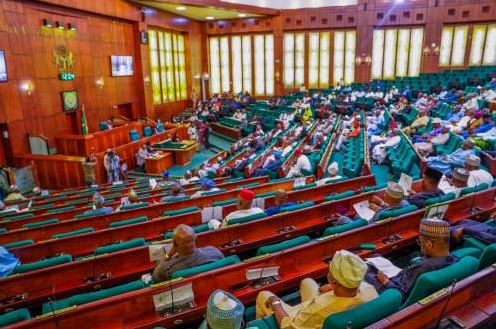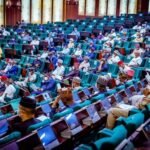A bill seeking to amend the 1999 Constitution to allow the creation of state police and other community security outfits such as Amotekun, Ebube Agu and others has passed second reading in the House of Representatives.
The bill passed on Tuesday will decentralize the current police system by moving police from the Exclusive Legislative List to Concurrent Legislative List to give room for the establishment of security agencies by state governments.
Chairman of the House Committee on Judiciary, Onofiok Luke, who sponsored the bill said that community policing or localization of policing is not encouraged by the federal structure.
“Recruitment and subsequent deployment of police officers in their local area is one of the major ways of curbing crime. Such officers understand the area, terrain, language, behaviour and attitude of the people he or she is policing, ” he said leading the debate during plenary.
The proposal reads, “(31) The National Assembly may make laws for the establishment of the federal police and other federal government security services;
“(32) A House of Assembly may make laws for the establishment of state police and other state government security services.”
The Third Schedule to the Constitution will also be altered by inserting new Paragraphs 9 to 12.
The new paragraphs read, “(9) A State Police Council shall comprise the following members: (a) the governor, who shall be the chairman; (b) the chairman of the State Police Service Commission; and (c) State Commissioner of Police.
“(10) The functions of a State Police Council shall include (a) the organisation and administration of a State Police Force and all other matters relating thereto (not being matters relating to the use and operational control of the Force or the appointment, disciplinary control and dismissal of members of the Force); (b) the general supervision of a State Police Force; and (c) advising the governor on the appointment of State Commissioner of Police.”
“Many years after independence, Nigeria has continually been beset with insecurity ranging from terrorism, kidnapping, armed robbery, and domestic violence. Granted that there is no society without crime or manifestation of criminal behaviour, our inability to bring to the barest minimum crime is a scathing indictment on the current security architecture and structure in the country,” Luke said while leading the debate.
“Nigeria, a country with over 201 million people, is grossly under policed with about 400, 000 police personnel. This number falls far short of the United Nation’s recommendation of ratio 1 per 400 citizens.
“The Constitution envisages Nigeria as a federal state. Granting allowance to state governments to establish police force and other security apparatuses will bring Nigeria into original constitutional contemplation of a federal state.”
In June 2021, the House approved a bill to amend the 1999 Constitution to recognize security outfits created by states to complement the Nigeria Police Force in the effort to protect lives and property.
Ifunanya Ikueze is an Engineer, Safety Professional, Writer, Investor, Entrepreneur and Educator.























































